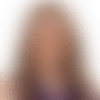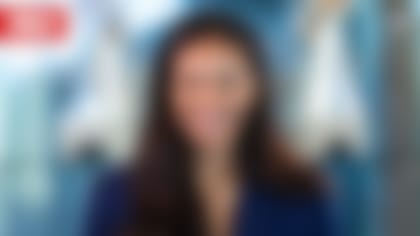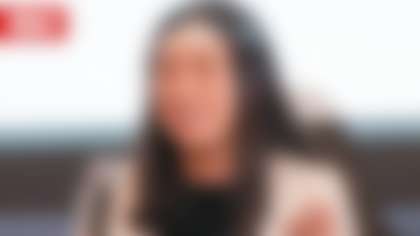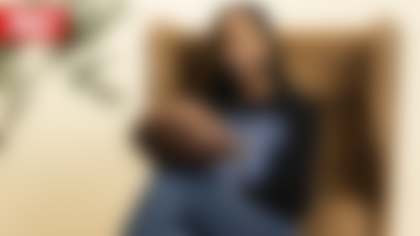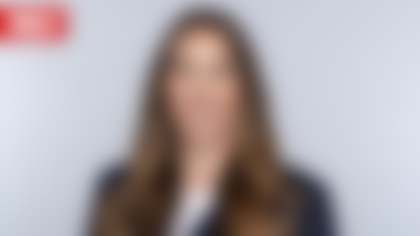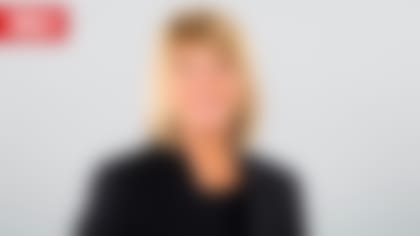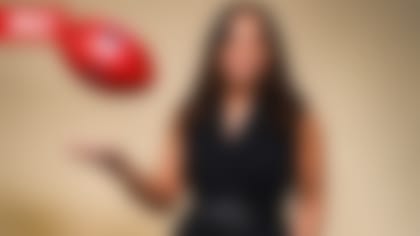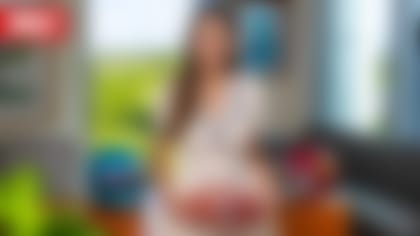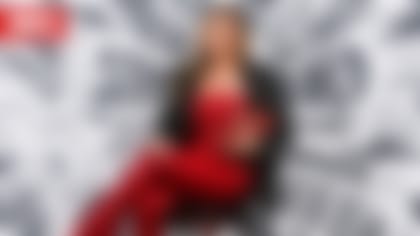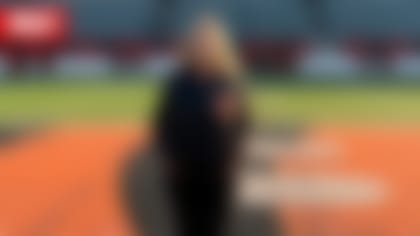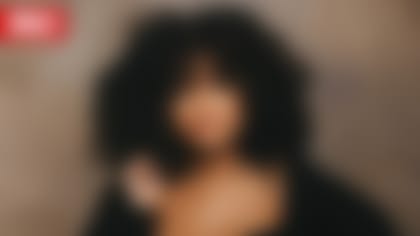Women are rising up the ranks throughout professional football, earning positions of power in a space that for too long was ruled almost exclusively by men. We're seeing more and more women breaking barriers in the sport, but what are the stories beyond the headlines? Who are the women shaping and influencing the 撸先生AV today? Answering those questions is the aim of the Next Woman Up series. While the conversational Q&As are edited and condensed for clarity, this is a forum for impactful women to share experiences in their own words. Without further ado, we introduce:
Alexandra Cancio-Bello
Position: Fourth-year student at Howard University College of Medicine who recently completed a month-long clinical rotation with the New York Giants medical staff through the 撸先生AV Diversity in Sports Medicine Pipeline Initiative
* * * * *
How did you become part of the 撸先生AV Diversity in Sports Medicine Pipeline Initiative?
I received an email from Howard University that said they were partnering with the 撸先生AV for a once-in-a-lifetime orthopedic rotation. How else to best learn orthopedics than football? So I applied and they told me I had been accepted to the program. I was so excited to learn that I was going to be with the New York Giants because they are affiliated with the Hospital for Special Surgery, which is the in the country. I also learned that I would be working with Dr. Scott Rodeo and Dr. Samuel Taylor, who are titans in the field. It's a big deal to be able to work with them.
The fact that the Giants are having an incredible season this year is a bonus. I haven't always followed football, so I definitely had to do some research before starting my rotation. I would say my time with the Giants was my first real football experience, which is the best one you could get.
What were some of things you did and/or learned during the month-long rotation?
Giants assistant athletic trainer Mike Baum set up an incredible rotation schedule. Some days were split between Quest Diagnostics Training Center and Hospital for Special Surgery. It was different each day, and I was exposed to so many things. My favorite day of the week was Monday. I'd get to the training center at about 7 a.m. for injury clinic. I was there with Dr. Rodeo, Dr. Taylor, head athletic trainer Ronnie Barnes, the trainers and the players. That's when I learned the most. Then in the afternoon, I went to the hospital to observe a surgery.
I was at the training center Tuesdays and Thursdays for practice. People normally see injuries occur in a game, but it was during practice when you could see why those injuries happened. Watching the players do drills and practice made me realize certain things like why the defensive line has so many elbow injuries, and it could be because they do a lot of the same motions when trying to block.
I also went to three games, including the Giants vs. Jacksonville game. Traveling with the team was a great experience.
That is great to hear. What were some of your biggest takeaways from the rotation?
It really takes a team to provide these athletes with the best care to keep them healthy and on the field. There is so much at stake, and the players have so much pressure on them. In a normal sports medicine rotation, you might tell a patient to relax for a few weeks and slowly get back to normal. That's not the case with the players. They came back every day and did therapy, which isn't always fun, but they have so much determination. Everyone from physicians to trainers play such a big role in the whole process. Usually, physicians refer patients to physical therapy, but it was really cool to see all of the steps of recovery play out and how crucial each step is. The rehab aspect was a big takeaway as well, because I had never been exposed to it.
When you look back, was there anything that surprised you?
I was surprised at how welcoming everyone was. It was really refreshing. Orthopedic surgery is a , and so is the 撸先生AV, with all of the players being men. But they wanted me to be there and asked questions about school and residency. They made me feel very comfortable. It was easy to create relationships with the physicians, trainers, players and even head coach Brian Daboll, who was super nice and made me feel welcome.
What was your favorite moment?
It has to be the games. The intensity is something that I had never experienced, and it's hard to describe. Being there on the sideline with the team, you can feel their complete focus, and the trainers and staff are also focused. There is one goal, and that's to win -- and keep everyone healthy. But I would say my favorite moment was at the Giants-Texans game. The players were giving me fist bumps as they came off the field. It was a great feeling being part of the team.
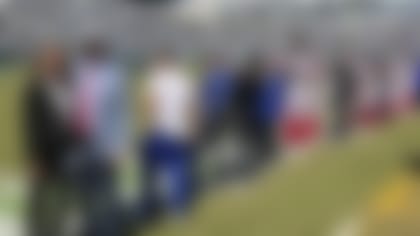
Do you have any mentors? If so, what have you learned from them?
Mentorship is so important. When I first started medical school, I thought the most important thing was how well I performed in classes and my board scores -- basically, how hard you work. But I've learned that in competitive fields like orthopedics, where there might be 1,000 people applying for seven residency spots, it's about who you know, connections and mentorship. No one in my family is a physician, so it can be challenging to find mentors. I worked hard to find them.
When the pandemic hit, I reached out to Dr. Robin West, who was a team physician for the Washington Commanders at the time. She was the first female orthopedic surgeon that I saw in the DMV area, so I emailed her. She met with me on Zoom, talked to me about the field, gave me some good advice and wrote a recommendation for me for a research position at Mayo Clinic. She was very helpful.
Then, I took a research year at Mayo Clinic to not only get experience but to also create mentorship. There I had worked with Dr. Brandon Yuan, Dr. Jonathan Barlow and Dr. Krystin Hidden. They were incredible, and I learned how important empowering a mentee is. That wasn't something I had experienced until going there, and it probably helped get this opportunity with the Giants. Then meeting Dr. Rodeo and Dr. Taylor has been amazing. Interview invites for residency came out earlier this week, and Dr. Rodeo called me to ask if he could reach out to the interviewers. He wanted to tell them a little more about me before I meet with them. That's a huge deal, and I'm very lucky to have these mentors. I look forward to being able to do the same for others.
Again, there aren't many women in orthopedic surgery. I've been told by many people who don't know me or haven't worked with me -- they only see me -- that I should consider something else. Hearing that over and over again, even though they haven't seen me in a medical setting, it can get to you. I don't necessarily need people to validate what I'm capable of, but meeting people who are respected in the field and give you support and the confidence that you do belong is a good feeling. Having them advocate for me means a lot.
Before this rotation, did you consider working in professional sports a career option for orthopedics?
I always knew it was an option, and I knew how competitive working in professional sports is, because it's the pinnacle of sports medicine. Everyone wants this, so I was unsure if it was a realistic goal for me. This program has made me feel that it could be an option for me, whereas it was more of an idea before. This rotation has really meant a lot to me and everyone else who's been part of it.
